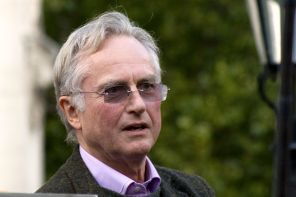The Huffington Post published an interesting piece by Christian Piatt this weekend. In it, Piatt responds to two questions posed by a friend. One of them is, “Isn’t postmodernism giving way to a kind of hyper-modernism?”
No, says Piatt, though it’s easy to understand the source of the question. When a perspective dies out, he explains, “there will be some degree of push-back from those entrenched in the prior way of seeing things.” As modernism and its characteristically binary view of the world expires, those invested in it grow uneasy and panic. Therefore the rise of that uniquely modern phenomenon, religious fundamentalism.
In other words, the sound and fury of contemporary religious fundamentalism is the last desperation of a dying worldview. It is the final struggle before the inevitable end. Religious fundamentalism, Piatt says, can’t last.
But religious fundamentalism is not the only branch attached to the dying vine of modernity. So too is the rigid scientism of the so-called New Atheists. Their sound and fury, dependent as it is on that of the fundamentalists, is more recent. It also cannot last. Where would the Richard Dawkinses of the world be without the Ken Hams (not to mention the Osama bin Ladens)? What happens to New Atheism when religious fundamentalism wanes?
Any worldview, religious or not, that relies on the props of modernity — Enlightenment-style rationalism, an obsession with material evidence, extreme individualism — is doomed. Because modernity itself is doomed.
Of course, it is equally true that any viewpoint, religious or not, that rejects the good fruits of modernity — natural science, for example — is also doomed. Because science is here to stay.
But really, science is not all that.
There is an historical conceit among many who view science as humanity’s lone candle in the dark; I call it the Bronze-Age Goat Herder Conceit. The idea is that religion, with its origins among “Bronze-Age goat herders,” belongs strictly to the past.
In this conceit, the Enlightenment is seen as humanity’s “coming of age.” This metaphor, courtesy originally of Immanuel Kant but pushed to extremes by less esteemed thinkers, suggests that the putting away of all religion is the right and proper putting away of childish things. To let go of religion is to let go of mama’s skirt. It is to grow up. It is to leave religion back where it belongs: in the dust with the Bronze-Age goat herders. In its place we have rationality, science, empiricism. These are values worthy of a fully grown-up humanity.
Perhaps this view is tainted at the source. Perhaps the recent rise in atheism, which is a mirror image of the less-recent rise in religious fundamentalism, is not a bold new adventure in growing up. Perhaps it a desperate rear-guard action, a necessary and predictable expression of the mortally-wounded modernist dream.




